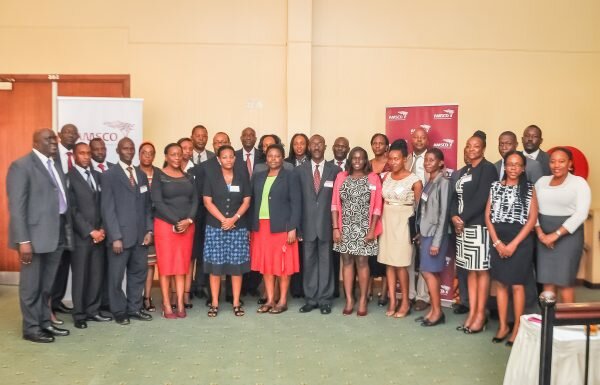The African Management Services Company (AMSCO) on Wednesday hosted senior executives from various companies, firms and organisations to a breakfast forum at Serena Hotel. Held under the theme ‘Focus on the Future: Developing Local Human Capital to Drive Organisational Strategy and Growth’, the event sought to increase dialogue around skills development in Uganda, and in particular, building local human capital for sustainable growth.
Speaking during the breakfast, AMSCO Director of Operations Mr Kofi Andah said an organisation’s workforce is the most valuable asset in order to pave ways for greater achievements through innovation and creativity.
“While Uganda has experienced significant growth during the 2012-2015 period, national progress on human development has been slow and mixed,” he added.
According to Stella Masinde, the Training and Development Manager of AMSCO, training and Development is delivered through a range of programmes designed for private enterprises , the public sector and individuals aimed at accelerating growth and profitability of the businesses.
The keynote address was delivered by Mr Peter Kimbowa, Managing Partner for IFE Consultants who urged the CEOs to encourage their employees to take up leadership training so as to build exemplary and committed leaders.
“There are very many things that define who a great leader is and an education qualification alone is not enough. We ought to look at the emotional conscience, social intelligence and capacity to manage social relations with other people. Such skills can be imparted in someone by the organisation,” Kimbowa said.
Masinde spoke on the need to invest resources to ensure that employees have the knowledge, skills, and competencies they need to work effectively in a rapidly changing environment. “Organisations are in urgent need of new strategies and approaches that focus more explicitly on the links between investments in skills development and productivity. Unfortunately, in many companies, training, which is one of the most effective forms of human capital development, is viewed more as a cost, rather than an investment.”
Comments
comments











